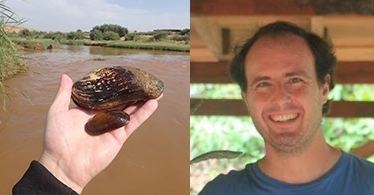
Next Thursday 15 November 12:00 am at Seminar room - SS6 (lower-ground floor, institutes building), Dr. Ronaldo Sousa (CBMA – Centre of Molecular and Environmental Biology, Department of Biology, University of Minho, Portugal) will give a Seminar on "Conservation of freshwater ecosystems across three continents using strange organisms".
SEMINAR(i): Conservation of freshwater ecosystems across three continents using strange organisms
WHO?: Dr. Ronaldo Sousa (CBMA – Centre of Molecular and Environmental Biology, Department of Biology, University of Minho, Portugal)
WHAT?: Conservation of freshwater ecosystems across three continents using strange organisms
WHEN?: Thursday 15/11/2018 – 12:00 am
WHERE?: Seminar room - SS6 (Institutes building floor -1)
ABSTRACT:
In conservation, invertebrate species received much less attention than vertebrates. Reasons for this may include: invertebrates are much less charismatic than vertebrates; their ecological functions and services are mostly unknown to the general public; policymakers and stakeholders are mostly unaware of invertebrate conservation problems; basic ecological science on invertebrates is scarce and suffers from severe financial constrains; and many species still undescribed. In this presentation we will discuss conservation problems facing by one of the most threatened faunal groups in the planet: freshwater mussels (Order: Unionida). Using examples from deserts to tropical forests (in Europe, North Africa and South-eastern Asia) we will discuss the scientific background, main threats and future challenges concerning the conservation status of these animals and their ecosystems. Although the problems are distinct in the different continents main threats include loss and fragmentation of habitat, water abstraction, overexploitation, pollution, introduction of invasive species and climate change. Several examples will be discussed regarding these threats mainly focusing on the impacts generated by invasive species. Finally, in situ and ex situ conservation initiatives devoted to the conservation of these animals will be discussed.
Links:












